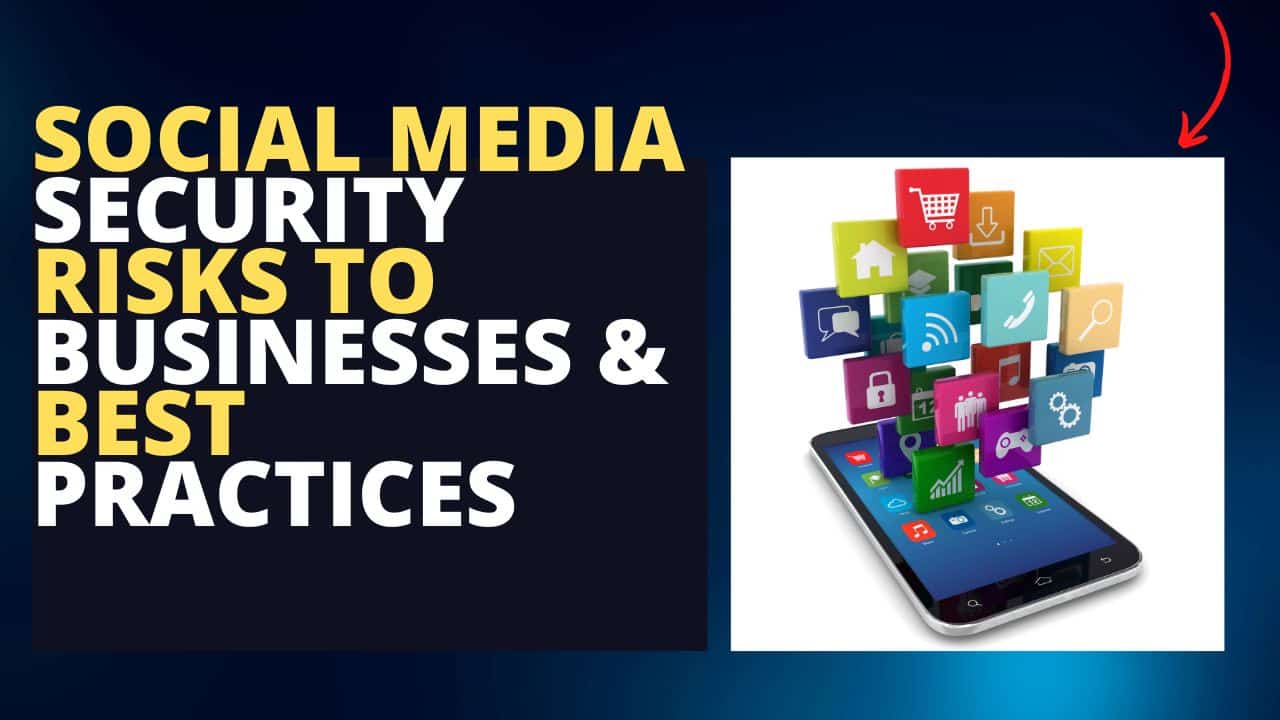Ways to Prevent Social Media Threats
One of the most effective ways to prevent social media threats is by educating employees about the risks and best practices for using social media. This includes implementing clear policies and guidelines for social media use, providing regular training sessions on security protocols, and encouraging employees to report suspicious online activity. By developing a culture of awareness around social media security, businesses can reduce the likelihood of data breaches or other malicious social media attacks themselves.
Another strategy for preventing social media threats is regularly monitoring accounts and implementing strict access controls, including limiting who has permission to post content, requiring multi-factor authentication for logins, and using tools that monitor account activity in real-time. Additionally, it's essential to stay up-to-date with the latest security updates and patches for all software used in conjunction with social media accounts.
Finally, businesses should also consider partnering with third-party security providers specializing in protecting against social media threats. These providers can offer advanced threat detection tools, 24/7 monitoring services, and expert guidance on mitigating potential risks. By taking a proactive approach to secure their online presence through employee education, internal controls, and external support from experienced professionals, businesses can significantly reduce their risk of falling victim to costly cyber-attacks via social media platforms.
What are the Security Risks of Social Media
Social media has become a part of our daily lives, and businesses are no exception. Platforms such as social media apps like Facebook, Twitter, and LinkedIn are accessible for companies to promote their products or services. However, with the rise of social media usage comes security risks that businesses must be aware of.

One significant security risk is the possibility of social engineering attacks. These attacks involve hackers attempting to access sensitive information by tricking employees and trick users into providing it. This can happen through phishing emails or messages that appear fake from a legitimate source. For more, click on our article: Free Guide to Phishing in Today's IT World
Another significant security threat on social media is data breaches. With so much personal and corporate information being shared on these platforms, it's not uncommon for hackers to target them in search of valuable data. As a result, businesses must ensure adequate security measures, such as two-factor authentication and regular password changes.
What a Social Media Threat Looks Like
A social media threat can take many forms, from phishing scams to fake accounts and malware. Phishing scams often come in emails, suspicious links or messages that trick individuals into giving up their personal information like usernames, passwords or credit card details. Fake accounts can be used for impersonation, spreading malware or sharing spam content.
Malware is software designed to harm computer systems without the owner's knowledge. Malware can be spread through social media through links leading to infected files. Once malicious links are clicked on, malware can potentially steal sensitive data such as banking information and login credentials.
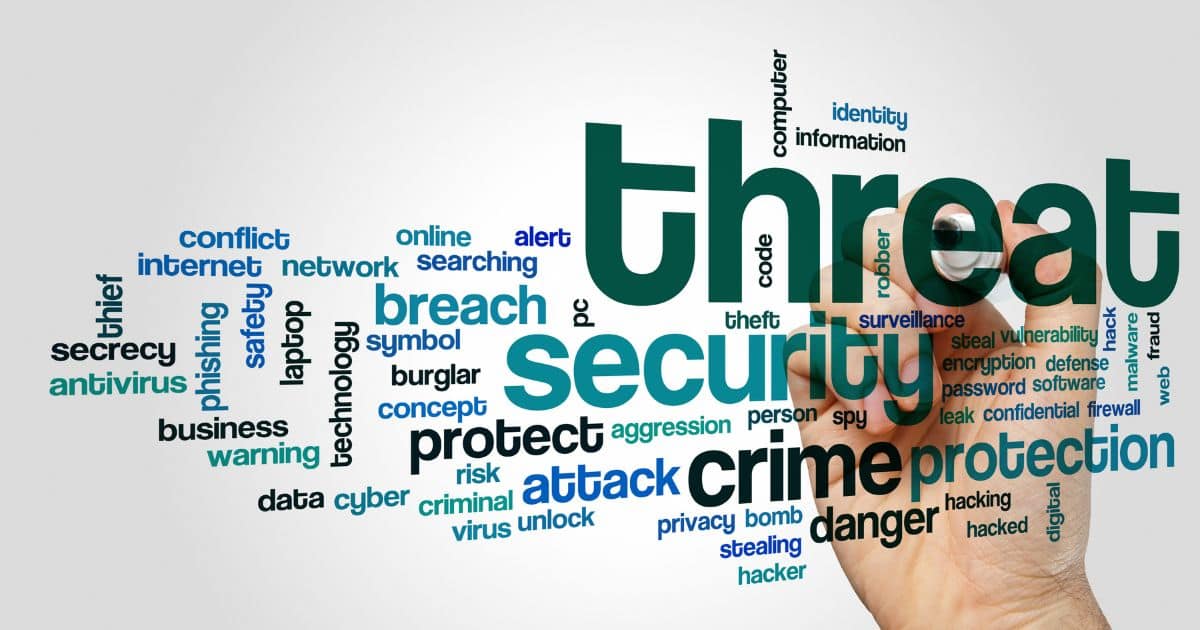
To protect against these threats, businesses should implement best practices when clicking links, downloading attachments from unknown sources, and regularly updating security software. Organizations must educate employees about these risks and provide training to detect and avoid potential social media threats happen. By following these precautions, businesses can minimize their exposure to social media security risks.
What are the three risks of Social Media for Business?
The first risk is the security threat. Social media platforms are a prime target for hackers and cybercriminals who can gain access to sensitive customer information, trade secrets, and financial records.
Another risk associated with social media use is reputational damage. One wrong post or comment on social networking sites or media could quickly spiral out of control and damage a company's reputation beyond repair. Therefore, it's essential to have strict guidelines for employees who manage social media accounts to avoid negative publicity.
Lastly, more control over content is needed when using social networking sites and media for business purposes. While businesses can create content, they cannot always control what others say about them online. As a result, negative reviews or comments can spread like wildfire across social networks and harm a business's credibility in no time.
To mitigate these risks, businesses must invest in robust security measures such as firewalls and antivirus software while training employees to handle social media accounts responsibly and respond appropriately to negative comments or reviews quickly before they spiral out of control.
If you want free protection that can help today, check out our article on Bitdefender Traffic light. Still, we recommend using Bitdefender Total Security Anti-Virus for a complete Virus and Malware protection package. It also includes an anti-virus App for your mobile phone and mobile devices, providing text message protection. They have a sale on now, so you may be able to bag a bargain, and please note that this is not a sponsored link.
What a Social Media Threat Looks Like
Malware attacks involve malicious software designed to damage or disrupt computer systems and steal valuable data. Finally, impersonation occurs when someone creates a fake account or social media posts using an actual user's name and profile picture to deceive others.
Social media security risks to businesses are becoming increasingly prevalent due to the amount of personal data shared online. The best way for companies to protect themselves. In addition, businesses should monitor their social media accounts regularly for any suspicious activity and report any suspected breaches immediately.
Businesses must be aware of social media threats and proactively protect their online presence. By doing so, they can maintain customer trust and prevent potentially costly security breaches from occurring.
Social Media Brand Fraud Report White Paper
Social media has become an integral part of any business's marketing strategy. However, with the rise of social media comes a new set of security risks that companies must be aware of. One of the most significant risks is brand fraud, which occurs when fake accounts or pages are created to deceive consumers and damage a company's reputation.
A recent Social Media Brand Fraud Report white paper highlights the seriousness and frequency of this issue. The report shows that 1 in 5 companies have experienced brand fraud on social media platforms such as Facebook, Instagram, Twitter and LinkedIn. These fraudulent accounts can lead to lost revenue, decreased customer trust, and even legal action against the affected company.
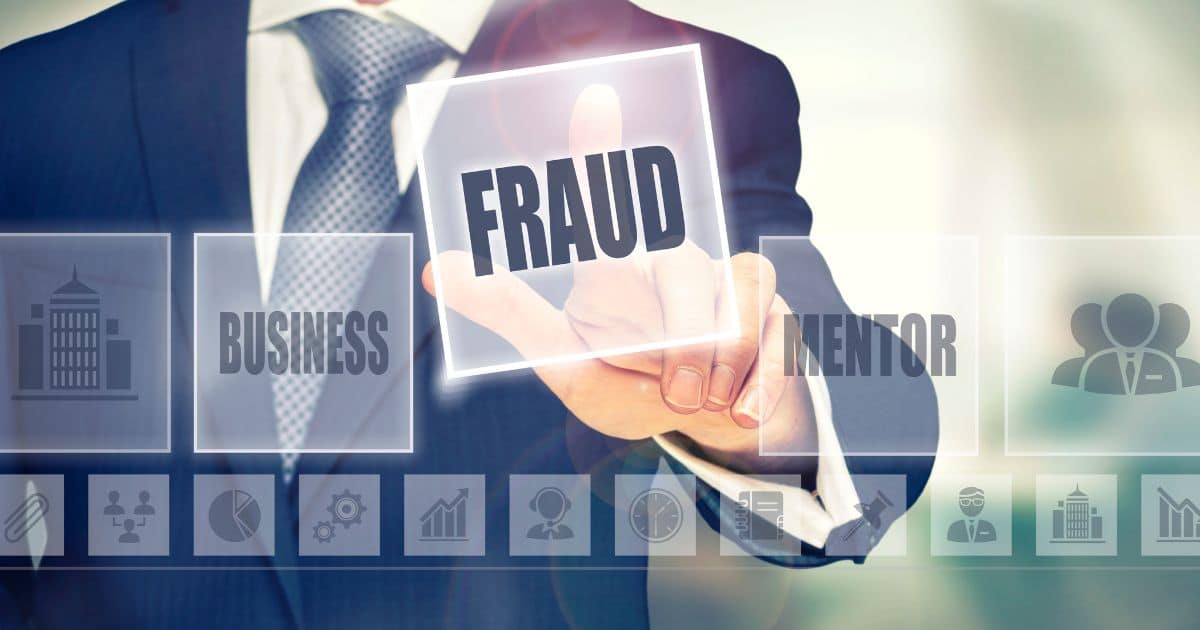
To combat brand fraud on social media platforms, businesses must take proactive measures such as closely monitoring their social media management platform and online presence for any signs of fraudulent activity, reporting fake accounts immediately to platform providers for takedown requests, and educating their followers about what authentic content looks like. By taking these steps seriously and implementing best practices for social media security risk management, businesses can protect themselves from potential financial losses due to brand fraud.
Loss Of Intellectual Property And Sensitive Data
One of the most significant risks businesses face regarding social media security is the loss of intellectual property and sensitive data. This and identity theft can occur when employees access social media sites on company machines or share confidential information through their social accounts. In addition, hackers can also exploit vulnerabilities within a company's social media accounts to access sensitive data.
To prevent the loss of intellectual property and sensitive data, businesses should implement strict policies around employee use of social media and ensure that all mobile devices used for work are secure. Additionally, companies must regularly monitor their social media accounts for any suspicious activity and take immediate action if they suspect a breach has occurred. This includes revoking access to compromised accounts, alerting affected parties, and implementing additional security measures.

Businesses must prioritize the security of their intellectual property and sensitive data when using social media platforms. By proactively mitigating risks and implementing best practices, companies can better protect themselves from potential breaches and safeguard valuable assets.
Loss Of Reputation
A loss of reputation is one of the most significant risks businesses face regarding social media security. This can happen in various ways, such as negative customer reviews, cyber-attacks, fraudulent or deceptive purposes and even employee misconduct on social media platforms. When a company's reputation is damaged online, it can lead to a loss of trust among consumers and potential customers.
To prevent this risk, businesses must implement best practices for social media security. One crucial step is regularly monitoring all activity on their social media accounts. This includes checking for negative comments or reviews and addressing them promptly and professionally. Another strategy is to train employees on using social media responsibly and ethically.
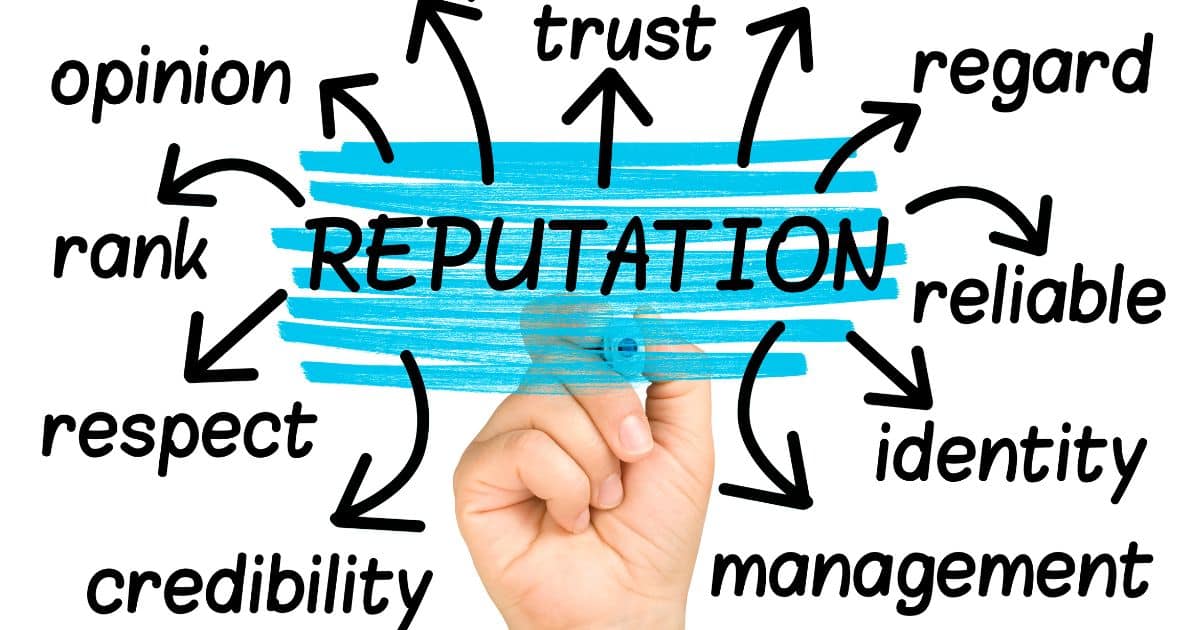
Overall, the key to protecting your business's reputation on any social media platform is being proactive about security measures and maintaining open communication with your audience. By staying vigilant and consistent in these efforts, you can minimize the risk of a damaging incident occurring online.
What Is Social Media Protection?
Social media protection or social media security refers to businesses' measures to safeguard their social media accounts against security threats. With the rise of social media, companies have increasingly been using these platforms to connect with their customers and promote their brands. However, this also means they are more vulnerable to various security risks such as hacking, phishing, and malware attacks.
Best practices should be followed to ensure social media protection for a business. These include creating strong passwords, enabling two-factor authentication, monitoring account activity regularly, restricting access to authorized personnel only and training employees on cybersecurity awareness. It is also essential to have a crisis management plan in place in case of a security breach.
Overall, implementing effective social media protection measures is crucial for businesses looking to maintain the integrity of their brand and protect their customers' sensitive information from cybercriminals. While many online threats exist today that can put your business at risk – with proper precautions and proactive steps – you can significantly improve your chances of avoiding becoming another victim of these harmful attacks.
Proofpoint Social Media Fraud Protection Solutions
However, it also poses significant security risks for organizations that can lead to reputational damage, financial loss, and legal issues. Social media fraud is one of the top threats that companies face today. Fraudulent activities such as phishing scams, fake accounts, and social engineering attacks are becoming increasingly sophisticated and challenging to detect.
Proofpoint is a leading cybersecurity company that provides comprehensive social media fraud protection solutions. Their platform leverages advanced machine learning algorithms to identify real-time fraudulent activities across multiple social media channels. It so users can detect suspicious posts, links, messages or comments before they cause any harm to your business.

Using Proofpoint's social media fraud protection solutions enables businesses to adopt best practices for social media security. These include implementing robust authentication protocols, providing regular employee training on identifying and reporting fraudulent activities, monitoring all social media channels for suspicious activity and using an automated system like Proofpoint's platform to mitigate risks efficiently and effectively. With Proofpoint's solutions in place, businesses can enjoy the benefits of social media marketing without worrying about potential security breaches that may negatively impact their brand reputation or financial stability.
Social Media Protection Data Sheet
Social media has become integral to every business's marketing strategy but poses significant security risks. Social media security threats can range from phishing scams to data breaches, and companies need to be aware of these risks to protect their online presence. A social media protection data sheet can help businesses understand the best practices for securing their social media accounts.
The first step towards social media security is educating employees about the potential risks of social media usage. Businesses should provide regular training sessions to their staff on identifying and avoiding phishing scams, malware attacks, and other online threats. Additionally, monitoring your company's official social media accounts is essential to detect unusual activity promptly.
Another vital aspect of social media protection is maintaining strong passwords and implementing two-factor authentication across all platforms. Only authorized personnel can access sensitive information shared through these channels. Finally, businesses must have a clear action plan in case of a security breach or cyber attack on their social media accounts. By taking proactive measures like these and following best practices outlined in a Social Media Protection Data Sheet, companies can safeguard themselves against potential online threats while reaping the benefits of a robust digital presence.
Monitor the Use Of Your Brand Name And Logo
One of the most significant social media security risks for businesses is brand impersonation. This occurs when individuals or other companies use your brand name and logo on social media to deceive customers and gain fraudulent profits. It can damage your reputation, lead to financial losses, and even result in legal issues. To prevent this from happening, it's crucial to monitor the use of your brand name and logo on social media regularly.
Monitoring your brand name and logo involves searching for any mentions or variations of them on social media platforms such as Twitter, Facebook, Instagram, LinkedIn, etc. You can also set up alerts that notify you whenever someone uses a specific keyword related to your brand. By monitoring this activity regularly, you can identify any unauthorized use quickly and take appropriate action before it causes significant harm.
In conclusion, monitoring your brand name and logo on social media protects your business from potential security risks. Regularly using various online tools, like Social Mention or Google Alerts, you can detect any infringements early enough to minimize their impact effectively.
Implement A Strict Password Policy
A strict password policy is crucial for businesses to protect themselves from cybersecurity and social media security risks. Passwords are often the first defence against cyber attacks, and weak or easily guessed passwords can leave companies vulnerable to hacking and data breaches. Therefore, a firm password policy should require employees to use complex passwords with a mixture of upper and lower-case letters, numbers, and special characters.
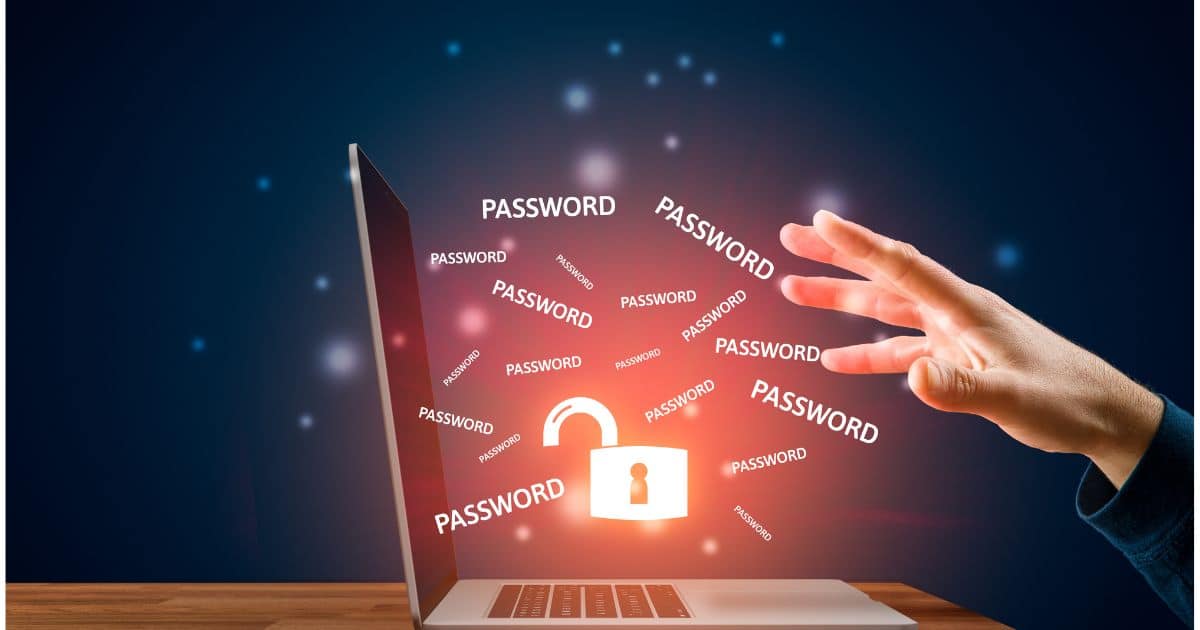
Additionally, the policy should mandate regular password changes and discourage employees from reusing old passwords across multiple social network accounts. A two-factor authentication process could also be implemented as an added security layer. Finally, educating employees on the importance of strong passwords and providing them with guidelines for creating secure passwords can help ensure that all team members follow the best social media account security practices.
A strict password policy protects your business's sensitive information from cyber threats. By ensuring that all team members are using strong passwords and following best practices for social media account security, you can help safeguard your company's online presence and reputation.
Data Breach or Data Leak
Data breaches or leaks can be a business nightmare, especially regarding social media. Social media security risks are becoming increasingly common in today's digital world. Social media platforms are attractive targets for cybercriminals because they provide vast personal and business information that can be exploited.
There is no foolproof way to prevent a data breach, but businesses can take steps to minimize the risk. One crucial step is to create robust passwords and enable two-factor authentication on all accounts. It's also important to stay updated on the latest cybersecurity threats and trends by regularly monitoring news sources and industry experts.

Another best practice is to limit access privileges within your organization carefully. For example, only authorized personnel should have access to sensitive information, such as social media account credentials or customer data. Lastly, businesses should consider investing in cybersecurity insurance policies that protect against losses associated with data breaches or leaks. These policies can help cover the costs of recovery efforts, legal fees, and other related expenses that may arise from a cybersecurity incident on social media platforms.
Conclusion
Social media security risks to businesses are real and can cause significant harm to an organization's reputation, finances, and customers. Therefore, every company must adopt best practices that guarantee the safety of its online presence. These measures may include setting strong passwords, encrypting confidential data, monitoring access to social media accounts, and training employees on safe social media usage.
Moreover, businesses should stay updated with emerging digital threats by following industry news and consulting with cybersecurity professionals. By preparing for potential security breaches beforehand and having a crisis management plan in place, organizations can minimize damage when such incidents occur.
In summary, while social media platforms offer many benefits to businesses regarding marketing and engagement opportunities with customers, it is vital to recognize their potential risks. Implementing best practices for social media security can help ensure that your business remains secure from these risks and continues to thrive online.

